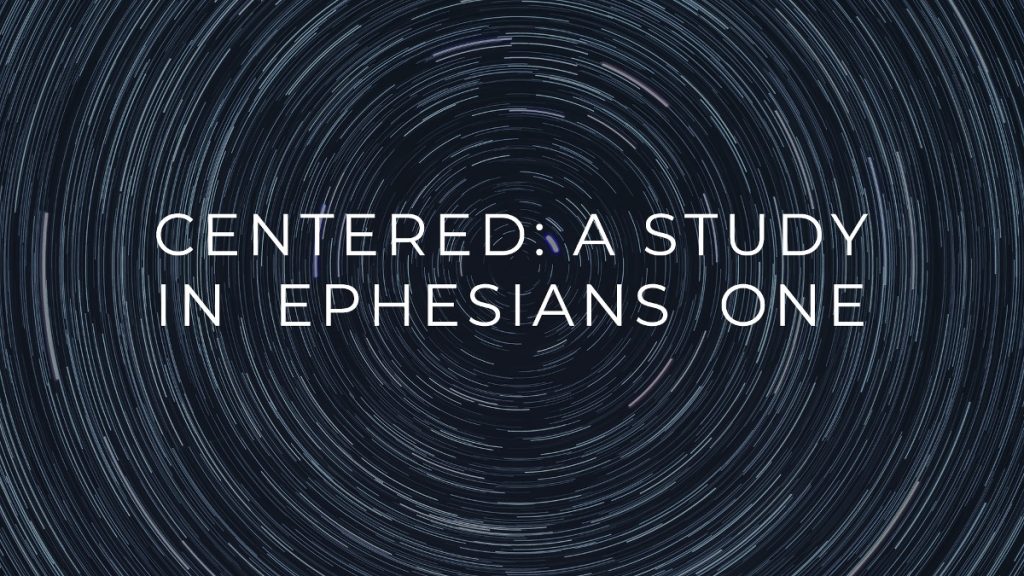Passage: Ephesians 1:3-14
Guide for Group Discussion or Personal Reflection
Sermon Summary
The greatest stories of our time are often pointing to our questions about fate and destiny. We wonder who decides our destiny or if fate even exists. As Christians we can be confident that God is in control of our destiny and, in fact, our destiny is God’s sovereign, adopting love.
As we zoom in on Ephesians 1:3-14, looking particularly at verses 3-6, Paul tells us that God sovereignly chooses a people for himself. From the Old Testament through the New and into today, God chooses flawed people, freely and unconditionally, to be part of his eternal plan of salvation. The motivation for this choosing is God’s own good pleasure and we can be free knowing that our dignity resides in our being created and chosen by God’s grace.
The nature of God’s choosing his people is his love in Christ. This means that God’s approval of and commitment to Jesus is now ours. His love is timeless and limitless. Thus we can have joy and love as a result.
Finally, the goal of God’s loving election and predestination is found in two treasures: 1) we are holy and blameless and 2) we are predestined to be children by adoption. God’s sovereignty enables us to embrace his love as he declares us holy and blameless despite the things we’ve done and welcomes us as his children able to receive his full inheritance through Christ. All of this leads us to praise God for his grace and long for more of it.
Sermon Outline
- God Sovereignly Chooses a People (1:4-5)
- The Nature of God’s Choice (1:4, 6)
- The Goal of God’s Choice (1:4-5)
Group Discussion & Personal Reflection Guide
Re-read the passage (Ephesians 1:3-14)
God Sovereignly Chooses a People (1:4-5)
Q) As you look at verses 3-5, what are some of the actions that God is taking in the passage? What words point to God’s sovereignty?
Q) Will said that in our culture “we believe that our dignity ultimately rests on our personal freedom” and that “we make our own destiny.” Have you noticed that mindset in yourself or others you know? What is the result when we believe that’s true? (e.g. anxiety about doing/being something great, defensiveness about our rights, insecurity, etc.)
Q) Read Deuteronomy 7:6-8. Why did God choose Israel to be his people? How does knowing that God chooses his people by his grace give you freedom?
The Nature of God’s Choice (1:4, 6)
Q) Will used the illustration of the love parents have for their children to help us understand God’s unconditional love. What would it look like if you were truly living out of God’s unconditional love for you? How would that affect your attitude, motives, and actions? Would it affect the way you interact with your family, neighbors, co-workers, or friends?
Q) How does the knowledge of predestination by God’s love help us press on through hardship? Is there an area where you are currently struggling where this truth can be an encouragement?
The Goal of God’s Choice (1:4-5)
Q) Verses 4-5 tell us that the goal of God’s choosing his people is twofold: 1) his people are declared holy and blameless and 2) his people are adopted as children. What do you think this means? How would you put this truth in your own language?
Q) What was the cost God paid to adopt us as his children?
Q) Will said that you know you’ve been chosen by God when God’s “grace becomes glorious to you.” That is, when you long for more of God’s grace and praise him for his mercy. Do you have that kind of longing today? Do you long for others to know the grace of God?
Additional Application Questions
Q) How else would you like to engage with God this week?
Q) How can you tangibly care for those in your community this week, both inside and outside of the church?
Prayer
Spend time praying for yourselves, our church community, the North Shore community, and our nation and world—particularly those most vulnerable.

